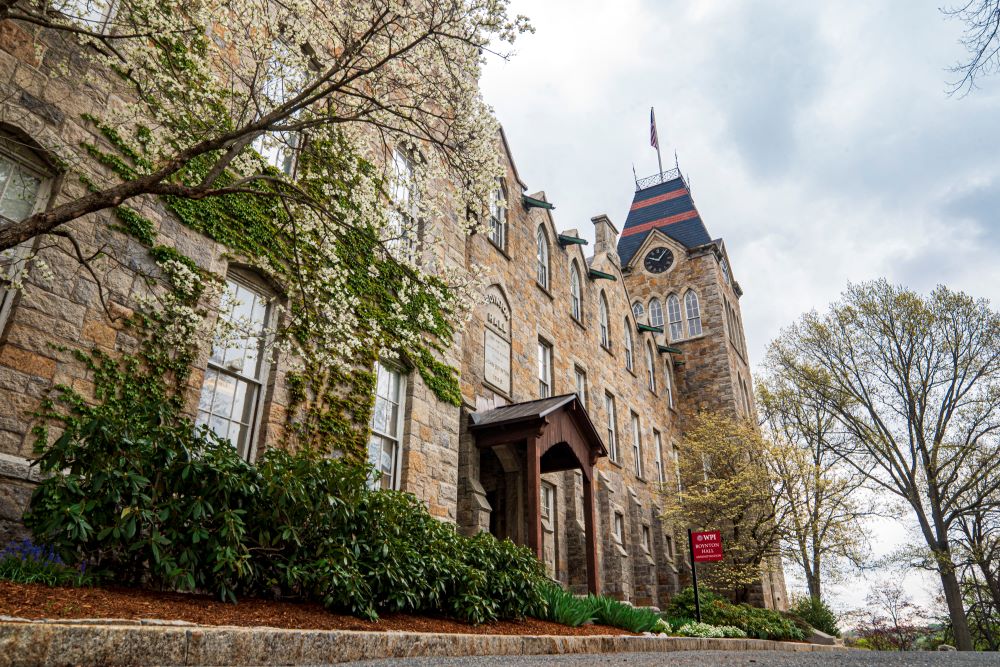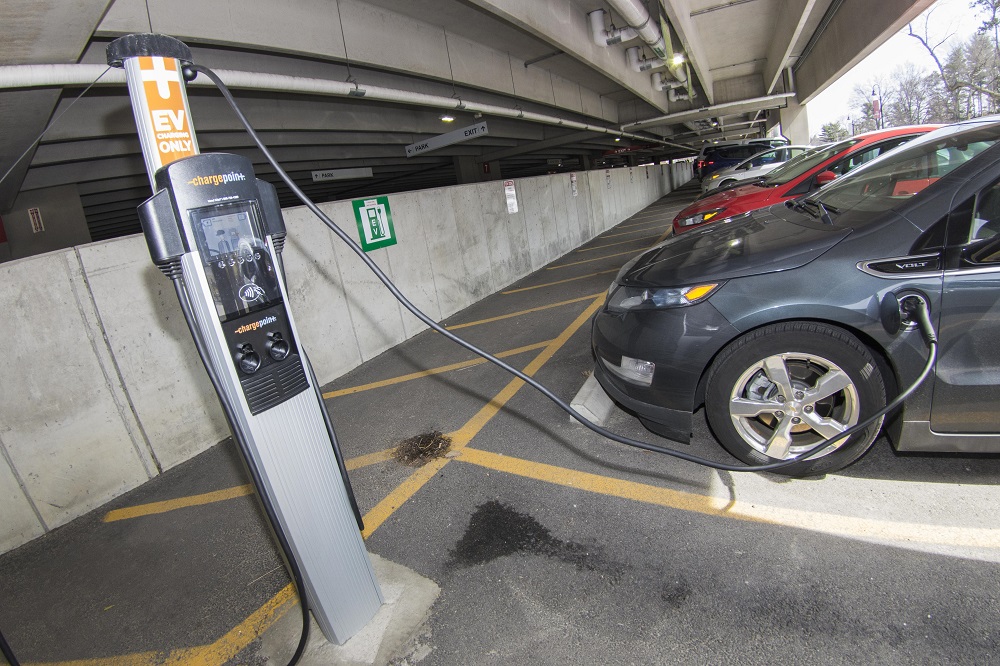Worcester Polytechnic Institute (WPI) was named one of the nation’s most environmentally responsible "green colleges" in a guidebook released this week by The Princeton Review.
The Princeton Review, in collaboration with the Center for Green Schools at the U.S. Green Building Council (USGBC), released the third annual edition of "Guide to 322 Green Colleges," which profiles institutions of higher education in the United States and Canada that demonstrate notable commitments to sustainability in their academic offerings, campus infrastructure, activities, and career preparation. The 232-page book—the only free, comprehensive, annually updated guide to green colleges—can be downloaded at The Princeton Review. It was developed with support from United Technologies Corp., founding sponsor of the Center for Green Schools.
"It’s an honor for WPI to be recognized by the Princeton Review’s annual Guide for our sustainability initiatives," said WPI President Dennis Berkey. "Our comprehensive commitment to sustainability is reflected throughout our campus, particularly in our project-based curriculum, in the way we operate our food service, and in how we design and manage our buildings. In addition, WPI students and alumni are applying their knowledge and experience to devise solutions to environmental problems around the world."
"As one of the nation’s oldest engineering and technology universities, it’s no surprise that WPI puts the ’global’ in global sustainability and the ’technology’ in green technology," the Princeton Review report says. "Students have ample opportunity to explore sustainability through academic programs and green student organizations. From the minute they step on campus, WPI students are focused on solving the world’s great problems, including food, energy, health, and engineering for sustainability.
"The university’s project-based approach allows for students to apply their classroom and lab-acquired knowledge to solve real-world problems—in their backyards and around the world. The Presidents’ Task Force on Sustainability at WPI provides leadership and coordination for campus-wide efforts, such as the installation of a new campus energy management system, the formation of a partnership with Zipcar, the commitment of food services to buy locally produced organic food, and improvements to recycling and food waste reduction. The WPI Board of Trustees has endorsed a policy calling for all future buildings on campus to be environmentally friendly and pursue LEED certification."
The Princeton Review noted that last year WPI placed 12th out of more than 1,000 colleges and universities in the Great Power Race—a clean energy competition among students in China, India and the United States. Notably, Bartlett Center, WPI’s admissions building, was the first LEED-certified building in Worcester, while the newest residence hall on campus, East Hall, provided the city with its first green roof and was awarded LEED Gold in 2009.
The Princeton Review, well known for its education and test-prep services, first created its green colleges guide in 2010 in collaboration with USGBC, which is best known for developing the LEED green building rating system. In 2010 USGBC launched its Center for Green Schools to increase its efforts to drive change in how campuses and schools are designed, constructed, and operated so that all educational facilities can enhance student learning experiences.
"College-bound students are increasingly interested in sustainability issues," said Robert Franek, senior vice president and publisher of the Princeton Review. "Among 7,445 college applicants who participated in our 2012 College Hopes & Worries Survey, nearly seven out of 10 (68 percent) told us that having information about a school’s commitment to the environment would influence their decision to apply to or attend the school."
The Princeton Review chose the 322 schools based on a survey it conducted in 2011 of hundreds of colleges across the U.S. and in Canada to tally its annual "Green Rating" scores of colleges for its school profiles in its college guidebooks and website. The survey asks administrators more than 50 questions about their institution’s sustainability-related policies, practices, and programs. The company tallied Green Ratings for 768 institutions in summer 2011. The 322 schools in this guide received scores of 83 or above in that assessment.
About The Princeton Review
The Princeton Review (princetonreview.com) has been a pioneer and leader in helping students achieve their higher education goals for 30 years through college and graduate school test preparation, private tutoring, and more than 150 print and digital publications. The team includes over 5,000 teachers and tutors in the US and Canada, and a network of international franchisees. The Princeton Review provides students and their parents with the resources to research, apply to, prepare for, and learn how to pay for higher education. The company also partners with schools and guidance counselors worldwide to assist in college readiness, test preparation and career planning services, helping more students pursue postsecondary education.
About the U.S. Green Building Council
The U.S. Green Building Council is committed to a prosperous and sustainable future through cost-efficient and energy-saving green buildings. USGBC works toward its mission of market transformation through its LEED green building certification program, robust educational offerings, a nationwide network of chapters and affiliates, the annual Greenbuild International Conference & Expo, and advocacy in support of public policy that encourages and enables green buildings and communities.


